News and Media Releases
all news | only media releases
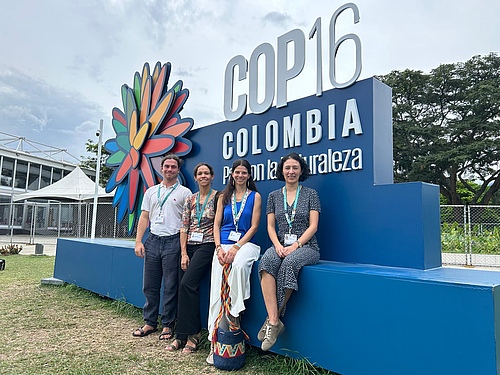
Addressing biodiversity challenges with science-based strategies › more
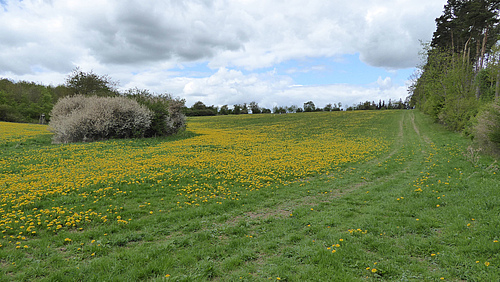
Effects of land use on soil biodiversity in cropland and grassland › more

New study in Nature Plants › more

Biodiversity, ecosystems and economics of enriching beech forests with conifers › more

Research group leader to advise the German government › more
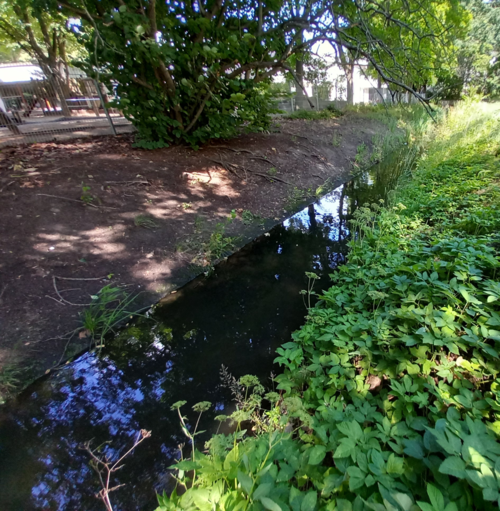
Read interview with the researchers › more
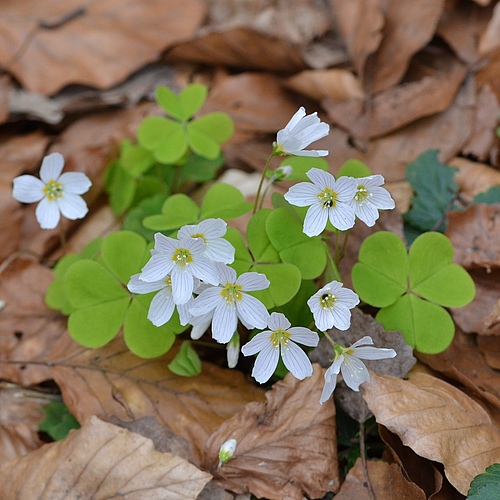
New study published in Science › more
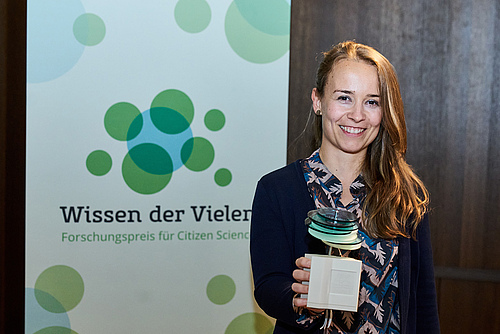
The Citizen Science project FLOW mobilised over 900 citizens to contribute to the ecological monitoring of small streams. › more
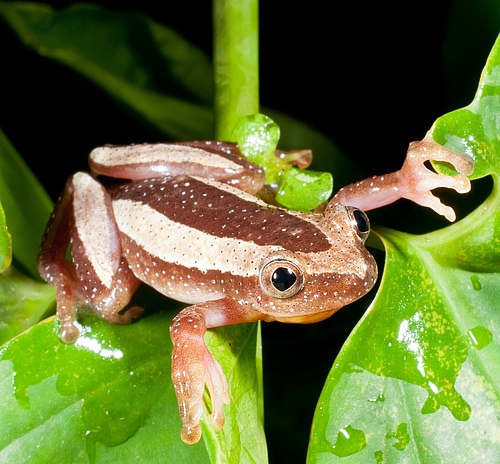
New climate change prediction tool provides insight into population-level vulnerability to global change through combining genomic, geographic and environmental data. › more
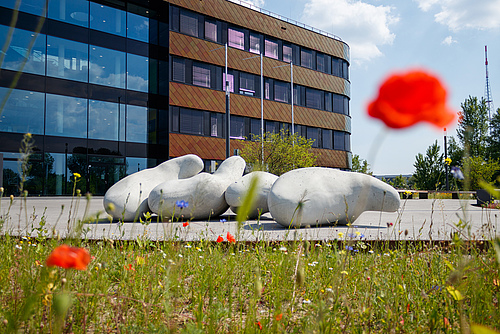
Today, the German Centre for Integrative Biodiversity Research (iDiv) enters a new phase with new funding, a new COO, and a new research group. › more
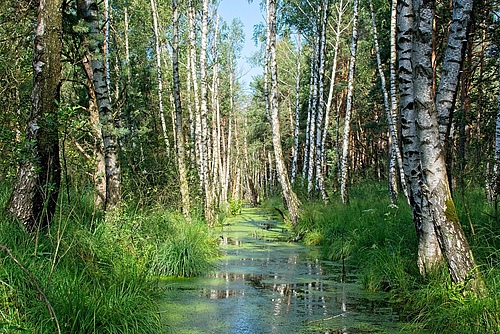
More than half of Germany’s habitat types have an ecologically unfavourable status › more
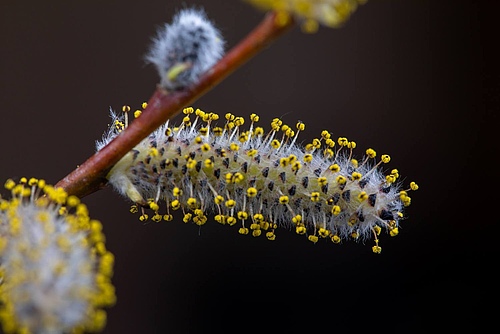
New study shows climate impact › more

Botanik-Tagung takes place from 15 to 19 September at Martin Luther University Halle-Wittenberg › more
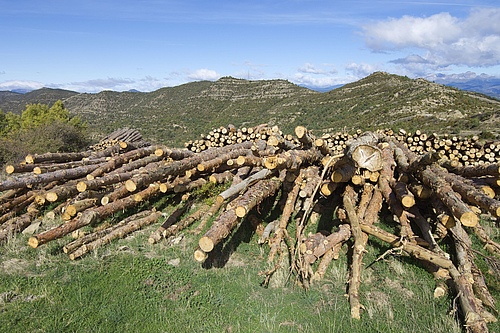
Serious impact on climate, say researchers › more

Birds and mammels on islands have a slower metabolism than their closest relatives on the mainland › more

Early career researchers study sustainable development › more

The higher the environmental stress, the lower the resistance to global change. › more
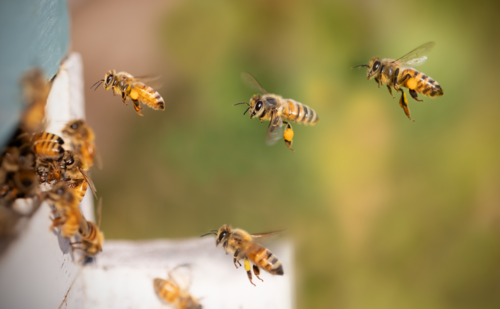
A new study reveals how farming practices affect colony health. › more

Researchers developed a comprehensive framework to promote diversity, equity, and inclusion in global biodiversity research › more
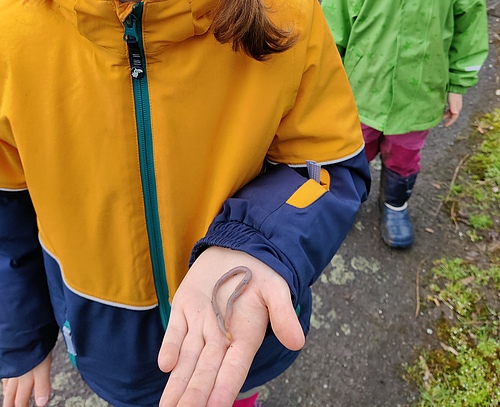
Communicating science to a broad audience has various benefits for all stakeholders › more
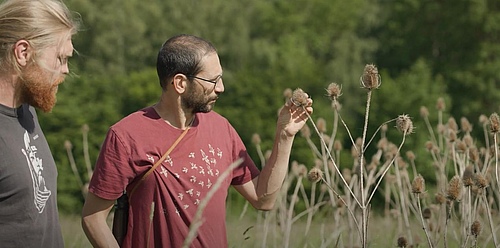
New video with Dr Guy Peer from iDiv and UFZ shows the importance of fallow land › more
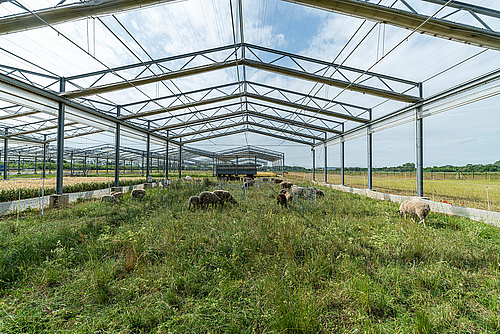
Low-intensity grassland is better able to withstand the consequences of climate change › more
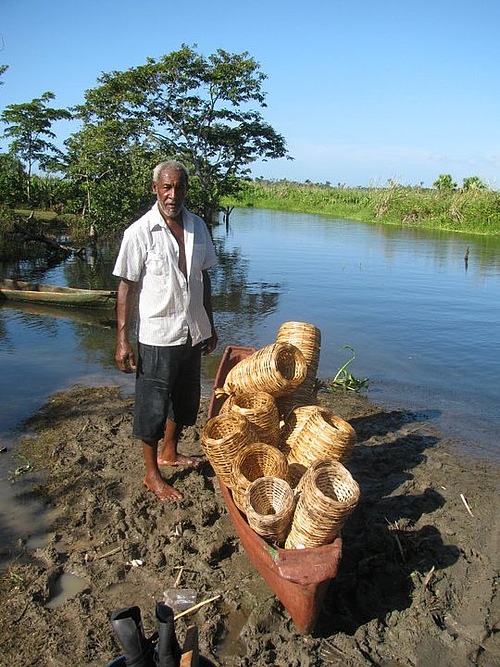
Nature supports the economic and social aspects that underly mental health › more

By leveraging millions of time-stamped observations, researchers can identify plant rhythms and ecological patterns year-round › more
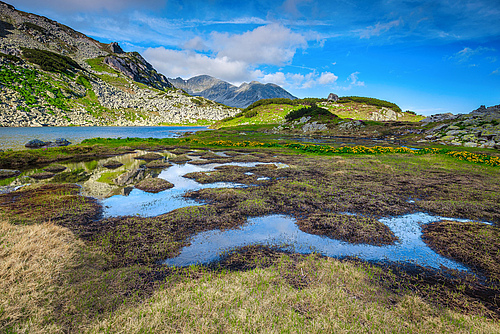
Study identifies policy needs, challenges, and future pathways. › more
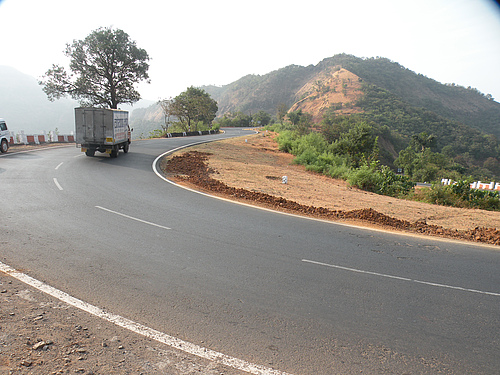
New insights could impact future conservation strategies. › more
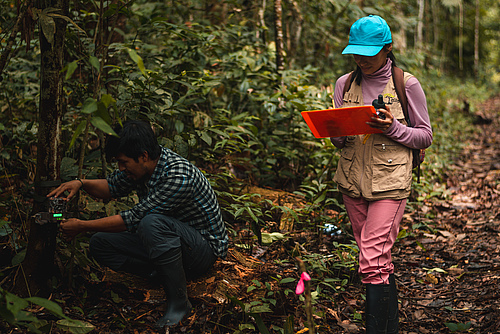
Report by Jose Valdez, postdoctoral researcher of Biodiversity Conservation at iDiv and Martin Luther University Halle-Wittenberg (MLU) Despite hosting some of the world's most biodiverse ecosystems… › more
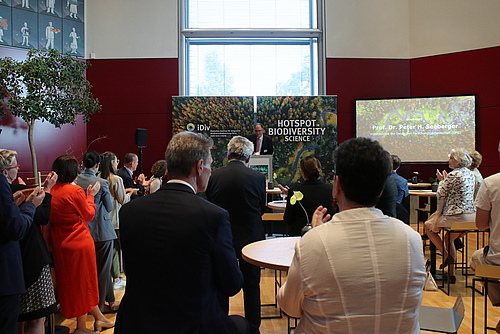
iDiv met with members of the Bundestag to discuss expanding Germany's role › more
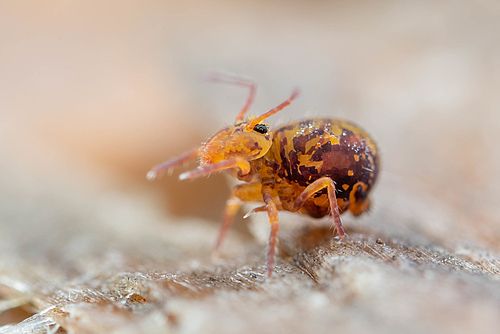
Life strategies of a multitude of soil faunal taxa can affect the formation of organic matter in soil. › more

New study in Nature Communications › more

Land users struggle with inflexible regulations and a lack of workforce › more

Largest modelling study of its kind, published in Science › more

Local differences in plant traits partially explain variation in climate-regulation processes › more

Nico Eisenhauer was admitted to the German National Academy of Sciences Leopoldina. › more

Researchers at iDiv propose a new strategy for rewilding amphibians in a recent study. › more

High scientific honour › more

One-third of Africa’s great ape population faces risks related to mining › more

Diana Wall passed away on the 25th of March 2024. Diana Wall, a leading environmental scientist and soil ecologist, has been a longstanding member of iDiv's Scientific Advisory Board (SAB) and part… › more

New study reveals how social status and behaviour are reflected in the genetic makeup › more

Ecologist Prof Henrique Pereira is part of the ECB's Motifs Advisory Group, which proposes motifs for the next generation of euro banknotes. › more

New study published in Science of the Total Environment › more

Fish species respond to temperature increases by going after more readily available prey. Models suggest this behaviour could lead to more extinctions. › more

A new approach to quantify the dependency of international trade and so-called Nature’s contributions to people › more

A new analysis shows that while many biotic communities are becoming more similar through time, an almost equal number are becoming more distinct › more

Nature study on the effects of land use change in tropical ecosystems › more

Study identifies vegetation types most in need of conservation efforts to protect threatened species. › more

Higher temperatures could pose the greatest threat › more

The US researcher will use the prize money for several stays at iDiv › more

Survey shows positive attitudes towards rewilding in the Oder Delta region, but finds locals’ feelings are mixed. › more

Whitepaper examines the role of technology and finance to address biodiversity challenges › more

Wirth’s work complements research focus of the Max Planck Institute › more

Effects of extreme drought have been greatly underestimated › more

Study reveals link between frequent plantation visits and infant mortality in wild southern pig-tailed macaques in Peninsular Malaysia › more

Interview with Martin Quaas, head of Biodiversity Economics research group › more

Final vote of the EU Parliament in 2024 › more

Declines in insect numbers are largely driven by losses of more abundant species › more

New study on the link between biodiversity and climate › more

Report of an Expert Working Group outlines policy recommendations to develop broader transformative policies for human, animal, and ecosystem health › more

Study reveals natural solution to mitigate effects of climate change › more

Halle, Jena and Leipzig are three of the top six German universities in the field of ecology › more

Eight iDiv members named Highly Cited Researchers › more

Doctoral researchers will investigate sustainable concepts for the use of natural common goods › more

How authors’ personal circumstances influence the depiction of nature in their works › more

A new approach to co-designing biodiversity indicators › more

Surprisingly far-reaching impacts of light pollution › more

Data published on social media platforms can improve knowledge about species distribution and inform conservation planning › more

DFG to fund Research Unit › more

New study published in Science Advances › more

Immediate protection measures are required to safeguard invertebrate communities and critical ecosystem services. › more

The body sizes of organisms around the world are becoming smaller over time, especially among fish, with important implications for food webs and humans. › more

iDiv's researchers1 are concerned about the already precarious working conditions in German academia and are alarmed that the proposed changes to the WissZeitVG will exacerbate this.The WissZeitVG is… › more

Species observations have unveiled a potentially universal pattern › more

Report by Léonard El-Hokayem, doctoral student at Martin Luther University Halle-Wittenberg and the German Centre for Integrative Biodiversity Research (iDiv) Halle. Decreasing rainfall and… › more

A new interconnected system to monitor biodiversity around the world is urgently needed to direct and focus conservation action. › more

New study reveals that over 1000 vascular plants in Nigeria may be undescribed. › more

Retention of dead biomass by plants likely to serve function in carbon and nutrient cycling › more

Researchers record large-scale shift in photosynthesis activity for the first time › more

International research team compares form and function of island and mainland plants › more

Novel framework allows for a more effective management of soils as carbon sinks › more

Habitat diversity can mitigate effects of climate change on insects › more

Over 300 guests from politics, science and civil society › more

New study suggests fragmentation and climate warming could disadvantage large animals due to their limited traveling speeds › more

Research project "MetaChange" will be funded with almost 2.5 million euros over the next five years › more

On 15 March 2023 sDiv - the synthesis centre of iDiv welcomed its 2500th participant at an sDiv working group meeting. The lucky one was Dr. Steven Bachman who travelled from the Royal Botanic… › more

More widely distributed species benefit from anthropogenic changes › more

Under long-term fisheries management, evolutionary change, that has resulted in smaller maturation sizes, can be reversed profitably. › more

Higher extinction rates of insular mammals after arrival of modern human › more

The effects of climate change on the Earth’s vegetation depend to a large degree on local conditions › more

New study reveals that living roots are as important as dead leaves in sustaining tropical soil biodiversity › more

NaturaConnect Stakeholder Event in Brussels brings over 70 leading EU policy and governmental decision-makers › more

Study finds that current monitoring data may be far too incomplete and deficient to provide a precise global picture of local biodiversity richness trends › more

Specialised foraging skills could have made the essential difference › more

Even many years after being abandoned, plant diversity of former agricultural sites is still incomplete compared to undisturbed sites › more

Researchers propose to consider insects in the expansion and new designation of protected areas › more

iDiv invited to a parliamentary evening in Berlin to discuss possible action › more

Biodiversity–stability relationships strengthen over time in a long-term grassland experiment › more

The complex relationships between plants and their pollinators have changed dramatically across the last century. › more

European project started to assess ecological restoration through rewilding › more

New framework to identify groundwater-dependent vegetation › more

Meta-analysis of scientific literature shows decline of interactions with nature due to growing urbanisation, but systematic studies are rare › more

Report by Dr. Sandeep Sharma, Researcher of the Biodiversity Conservation research group at iDiv and MLU, and lead author of a new publication in Ecology and Evolution › more

Study shows: citizen science can, indeed, be an option to assess the ecological state of smaller streams › more

Major review of the island’s biodiversity reveals urgent need for collaborative science-based conservation › more

Chair of iDiv’s Board of Trustees named University Manager of the Year › more

Researchers from Leipzig call for a joint research agenda linking research on climate extremes and biodiversity › more

Jena Senckenberg Institute of Plant Form and Function strengthens collection-based biodiversity research › more

Positive effects of grazing can turn to negative under warmer climate › more

Seven iDiv members named Highly Cited Researchers › more

Report by Dr Corey Callaghan, Assistant Professor at University of Florida, formally postdoctoral researcher at iDiv and Martin Luther University Halle-Wittenberg › more

International project NaturaConnect brings together the knowledge on how to protect biodiversity in Europe › more

Researchers rank drivers of global biodiversity change › more

Field experiment shows that competition for light is the key mechanism driving loss of plant diversity under eutrophication and lack of grazing. › more

Data gathered by habitat mapping programs can make important contributions to biodiversity research. › more

Exact number of silverfish and centipedes still unknown › more

Insecticides containing flupyradifurone and sulfoxaflor can have devastating effects on honey bee health. › more

Researchers find the processes behind species decline due to nutrient inputs › more

iNaturalist app users play a significant role in helping researchers create global maps of plant traits › more

Researchers evaluate plant population data between 1927 and 2020 › more

The movement of species around the globe has lasting impacts on biodiversity and human livelihoods far into the future › more

New study published in Nature › more

On 29 September 2022, the iDiv administrator networking event iDay took place at the iDiv Core Centre and the Botanical Gardens Leipzig. For the third time, the Central Services team invited… › more

Poorly defined land rights increase deforestation, but private land rights must go hand in hand with strict environmental policies. › more

Recent expansions mean little more than a stabilisation of the species › more

At the 37th meeting of the International Society of Chemical Ecology (ISCE) held from 8-12 August 2022 in Kuala Lumpur, Malaysia, our PhD student Jessil Pajar achieved the second place in the… › more

Islands act as natural laboratories of evolution › more

Steppes of Eastern Europe harbour a similar number of plant species as Amazon rainforest regions › more

Effectiveness of biodiversity conservation in national parks is associated with socioeconomic conditions › more

New digital map displays full diversity of life through thousands of photos › more

New research offers a pathway to achieving the 30 by 30 target using ecosystem diversity across four South American countries › more

New experts survey considerably extends the global biodiversity knowledge by underrepresented species groups and regions › more

Climate decoupling particularly prominent among habitat specialists › more

Leipzig citizen science project “VielFalterGarten” promotes insect diversity in the city and invites people to actively participate in the protection of butterflies › more

Over 300 scientists make recommendations on how to improve the EU’s Common Agricultural Policy › more

Researchers discover microbes in pitch-dark aquifers as important primary producers › more

iDiv and Leipzig University get new junior research group: “Soil Biological Diversity and Functions” › more

Report by Dr Jose Valdez, Postdoctoral Researcher of the Biodiversity Conservation research group at iDiv and Leipzig University, and senior author of a new publication in Frontiers in Ecology and… › more

Drought-exposure history improves the recovery of grassland communities from subsequent drought › more

Former research director of the Leibniz Institute of Plant Biotechnology (IPB) in Halle passed away › more

Junior Research Group 'Symbiont Evolution' started at iDiv and MLU › more

40 years of conservation data: Researchers show population trends of native insects › more

New genomic tools shed light on the evolutionary history of chimpanzees and contribute to their conservation › more

Large-scale use of camera trap data can help improve wildlife conservation › more

If expectant mothers are exposed to stress their child can develop behavioural problems - but less often with siblings › more

Researchers recommend urban conservation gardening measures to reverse horticultural trends › more

Role of the former Rector of Leipzig University for iDiv acknowledged › more

Novel concept helps managing soils as a carbon sink › more

DFG extends funding for the international research training group TreeDì › more

Effects of missing large herbivores on food plants still detectable today › more

Reptiles likely benefit from efforts to save other animals › more

Presentation of the Strategy and Citizen Science Festival on 29 April in Berlin › more

Nationwide measurement campaign of the citizen science project FLOW starts › more

iDiv delighted at award for founding director › more

Based on a press release by the Martin Luther University Halle-Wittenberg (MLU) National biodiversity monitoring programmes in Europe face many challenges: too little coordination, inadequate… › more

Researchers recommend taking underappreciated factors for biodiversity loss into account › more

Botanical gardens invite citizens to explore the effects of climate change on plants › more

Only weak trend correlations between different insect groups › more
![Collage of plant species that are range-restricted to Europe but threatened in at least one country, with some of them being globally threatened. (Picture: Vlaev, Dimiter in Peev, D. et al. (eds) (2015): Red Data Book of the Republic of Bulgaria. Vol. 1. Collage of plant species that are range-restricted to Europe but threatened in at least one country, with some of them being globally threatened. (Picture: Vlaev, Dimiter in Peev, D. et al. (eds) (2015): Red Data Book of the Republic of Bulgaria. Vol. 1. Plants and Fungi. MoEW & BAS, Sofia [Single inset drawings; compiled by Staude, I.]. http://e-ecodb.bas.bg/rdb/en/)](/fileadmin/_processed_/3/a/csm_pic_f98b3b0e6520220210143620_7ab832576e.jpg)
Study closes gaps in the risk of extinction of plant species › more

Identical twins’ nature experiences more similar than fraternal twins but local environment also key › more

Chemical "cry for help" from trees verified in a natural habitat for the first time › more

BMBF research project starts in the Oder Delta model area › more

Environment ministers from Saxony-Anhalt, Thuringia and Saxony discuss regional biodiversity protection measures › more

Report by María Felipe-Lucia, Senior Scientist at German Centre for Integrative Biodiversity Research (iDiv) and Helmholtz Centre for Environmental Research (UFZ) › more
